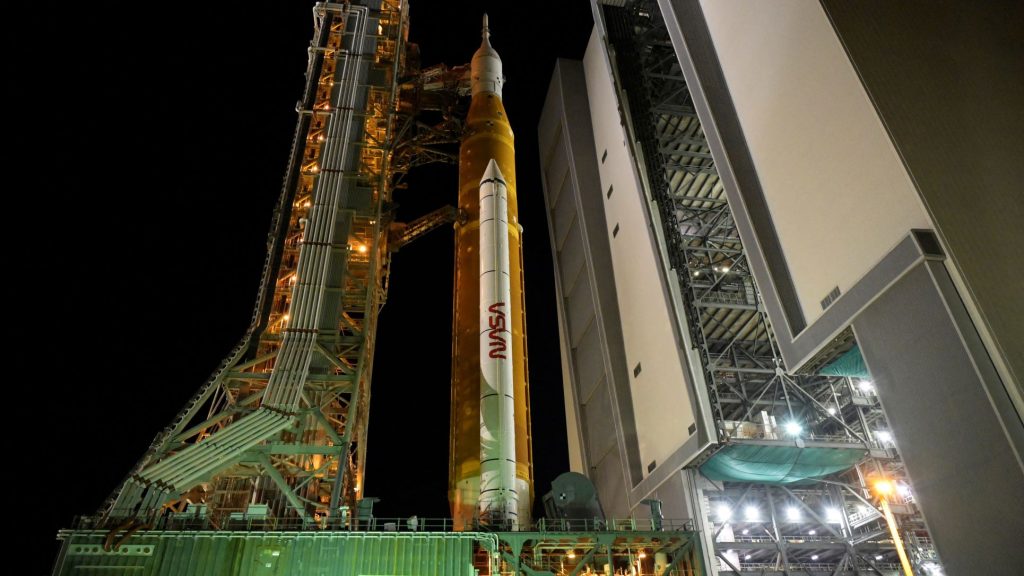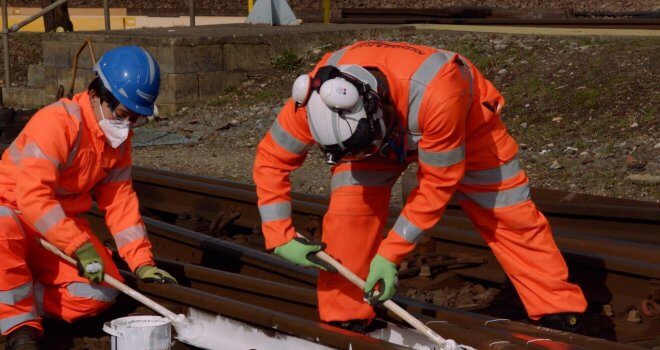NASA’s Giant U.S. Moon Rocket Emerges For Debut Launch

NASA’s gigantic Space Launch System moon rocket, topped with an uncrewed astronaut capsule, began an hours-long crawl to its launchpad Tuesday night ahead of the behemoth’s debut test flight this month.
The 322-foot-tall (98-meter) rocket is scheduled to embark on its first mission to space – without any humans – on Aug. 29. It will be a crucial, long-delayed demonstration trip to the moon for NASA’s Artemis program, the United States’ multibillion-dollar effort to return humans to the lunar surface as practice for future missions to Mars.
The Space Launch System, whose development during the past decade has been led by Boeing Co, emerged from its assembly building at NASA’s Kennedy Space Center in Florida about 10 p.m. EDT (0200 GMT) on Tuesday and began a four-mile (6-kilometer) trek to its launchpad.
Moving less than 1mph (1.6kph), the rollout will take roughly 11 hours.
Sitting atop the rocket is NASA’s Orion astronaut capsule, built by Lockheed Martin Corp. It is designed to separate from the rocket in space, ferry humans toward the moon and rendezvous with a separate spacecraft that will take astronauts to the lunar surface.
For the Aug. 29 mission, called Artemis 1, the Orion capsule will launch atop the Space Launch System without any humans and orbit the moon before returning to Earth for an ocean splashdown 42 days later.
If bad launch weather or a minor technical issue triggers a delay on Aug. 29, the National Aeronautics and Space Administration has backup launch dates on Sept. 2 and Sept. 5.
(Reporting by Joey Roulette; Additional reporting by Dan Whitcomb; editing by Jonathan Oatis, Leslie Adler and Gerry Doyle)




